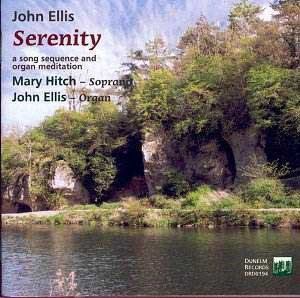|
|
Search MusicWeb Here |
|
 |
||
|
Founder:
Len Mullenger (1942-2025) Editor
in Chief:John Quinn
|
|
|
Search MusicWeb Here |
|
 |
||
|
Founder:
Len Mullenger (1942-2025) Editor
in Chief:John Quinn
|
 |
John ELLIS (b.1943) |
|
AVAILABILITY £10-00 + 95p p & p, from 2 Park Close, Glossop, Derbyshire SK13 7RQ (e-mail: sales@dunelm-records.co.uk; web site www.dunelm-records.co.uk) |
|
Dr John E Ellis was born in 6 June 1943. He is a well-respected composer of choral and vocal pieces as well as organ music. He is Organist at the Parish Church of St. Mary the Virgin, Prestwich, Manchester, where this recording was made. His aim in the music recorded here was to expand the repertoire for voice and specifically organ accompaniment. The whole programme indeed makes a satisfyingly varied sequence. Dr. Ellis’s idiom is accessible and basically tonal though not without its astringencies. He has a distinctive voice and that voice is of, and for, today. |
|
Return to Index |